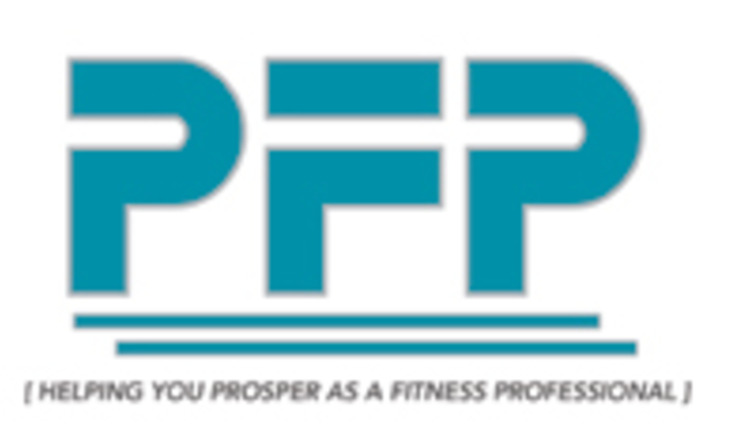Here are three exercises you can do that can help you grasp the power you have as a fitness professional at this point in time:
1. Watch a presidential debate, and start your stopwatch. Within 15 minutes, the term "health care" will come up.
2. Stand in line in a pharmacy, and watch how many people sign for their prescriptions. They're relying on their pharmacists, drug manufacturers and insurance companies to manage their health.
3. Visit a cafeteria in a large corporation, and watch the choices of foods that make it from kitchen to plate.
When the three exercises are complete, here's what you'll realize: Technology, information overload and an environment of constant change have come so fast and furiously that our population doesn't know who to turn to, what to do or who to trust. As a result, responsibility is relinquished, and we, the competent fitness professionals, become anxious spectators as the statistics become more and more alarming.
Questions Needing Answers
Why is gastric bypass so popular? Why do we see such a prevalence of type 2 diabetes? Why does obesity continue to climb? Why has metabolic syndrome been categorized as a disease? Why are insulin resistance, hypercholesterolemia, hypertension and hypothyroidism becoming accepted as inevitable mid-life afflictions?
Let's take it a step further. Why do people condemn fast food restaurants for failing to provide healthy and supportive meals? Whoever said fast food was healthy? Who forces people into the drive-thru lanes? Why do only four percent of health club members show up at least three times per week during the course of their memberships? Why do the home shopping networks sell most of their clothing in extra-large sizes and beyond and find an explosive windfall in selling diet, exercise and weight loss aids?
Here's the answer: The overwhelm of a society that has grown way beyond our body's evolutionary abilities to change exposes us to new risks that we aren't biologically equipped to manage. Compounded with the twisted information product marketers disseminate as science, the flawed message is loud and clear: The world is changing. Find someone to rescue you.
This societal thinking leads to an expectation that government should manage our health. It wants for a pill or product developer to finally release a fix-all. It asks surgeons to repair damage initiated by poor decisions. No longer are people thinking rationally when it comes to their health. They search for rescue in their televisions, email boxes and tabloid magazines.
But the answers lie with the sound technology of change we professionals have mastered; the synergistic relationship between supportive eating, resistance exercise and aerobic challenge. We have the solution the masses need, and the masses don't recognize that we are proficient at improving health. They think of us as workout leaders.
The Answer: an Uprising!
We have three choices. We can train only those who get it and let the rest falter. We can sit back and blame our population, resigning ourselves to the excuse that we can't control what our clients do the other 23 hours of the day, and we're sick and tired of answering stupid questions about which diet is best. Personally, I don't like either option — I opt for an uprising.
Never before has there existed the opportunity we now have as fitness professionals to rise up and rescue, to earn our rightful position as a recognized and respected player in the allied health care team. It's time for an uprising, one that serves trainers, one that benefits our population, and one that may even have an unprecedented impact upon our health care system. If we can gain a bit of perspective and develop a system for educating those in need of 21st century "eat right and exercise" information, we can begin to fill the gray area not being effectively handled by conventional medicine.
We live in a world where drug companies invest billions to generate hundreds of billions of dollars. The messengers who connect the pharmaceutical developments with the consumers are the physicians. HMOs, with good intentions, attempt to maintain networks allowing affordable health care, and the consumer is lulled into a false security that the doctor diagnoses, the drug fixes and the insurance company pays. If that's the case, why not eat pie?
Medicine must extend beyond diagnosis and prescription, and blanket diagnoses without exploring cause ensures that conditions may be managed without being eliminated. We competent fitness experts have the ability to restore people to health by minimizing or eliminating many of the initiators of the 21st century ailments, and I'm not only suggesting we can do for those we would consider ill.
Through activating targeted exercise programs, we know we can positively impact physical structure (bone density), body composition, blood sugar, blood pressure and metabolism and also bring about greater ease of movement, at times reducing or eliminating the common chronic pains many people are resigned to living with. Yes, we know this, but the population doesn't, and as long as we stay within the protective barriers of the position health clubs created for personal trainers, we will be perceived as workout leaders.
I envision fitness professionals and medical practitioners sitting side by side in seminars, learning how to better assist people in managing their own health, in eliminating "dis-ease" and restoring a sense of power to a disempowered population. I'm suggesting the field of personal training will divide into those who remain health club workout leaders, vying for sessions, and those who rise up and establish professional positions assisting individuals in bettering their lives.
What Now?
Gain an edge. Prepare for the future. Recognize the wave that's coming. Look beyond the workout card on the clipboard, think beyond the conventional fitness assessment, and expand your mindset way out of the realm of sets and reps. Below are six guidelines to help you step out of your box without stumbling onto the ground:
1. Amass a small, but powerful, evidentiary research folder — Subscribe to a couple of journals, ideally an exercise journal perhaps supplemented by a nutrition journal. The research conducted to validate drugs is well-publicized by the pharmaceutical marketers. The extensive research validating the positive changes exercise can bring about in blood pressure, blood glucose, cholesterol, inflammation and brain function rarely goes beyond peer review and publication. Peruse the journals, and pull out studies that you can reference when working with clients to attempt improvement through responsibility for their own health and function.
2. Stay within your scope of practice, but carefully venture beyond the edge of what "most trainers" do — Trainers in health clubs and wellness facilities are often told nutritional discussions are taboo, and anything remotely medical in nature should be handed off to a physician. Obey the laws of your working environment, but don't mistake them for suggesting that all you can discuss is exercise. Discuss managing stress with your clients. Collect sound and validated materials that allow you to provide clarity as to what roles the various macronutrients play and how nutrition relates to overall health. In cases where diseases or syndromes are identified, medical clearance is the route, but that doesn't mean you abandon your role. With medical clearance, you should work with the client to explore improvement as with guidance, you may outline a course of action that proves superior to standard medical protocol.
3. Document, document, document — Evidence comes from success. Many trainers embrace the moments where the client expresses thrilling life changes, but they fall criminally short in preserving those moments to ethically convince new clients of the potential outcomes. Always establish a complete baseline, chart, assess, and prescribe accordingly. You want super-clear records to help you determine what worked in each case, and you want those thrilling before-and-after scenarios to validate your worth among the prospects who question it.
4. Develop your own allied network — Find your experts. You are an expert in fitness and exercise prescription, but you need your "go-to" experts for other specialties contributing to overall wellness. Rather than searching on the Internet, trying to find answers to those questions that are outside of your scope, wouldn't it be easier to phone a friend? Befriend a general practitioner, a nutrition expert and a pharmacist, and work with them to expand your circle so you feel you can serve as a coach and an information intermediary without ever overstepping your bounds.
5. Challenge convention, and take a stand — In 1609, Galileo turned his first telescope upward. Prior to that moment in time, the predominant belief was unquestioned: the motionless earth was the center of the universe, and everything "out there" moved around it. He surmised otherwise and was declared a heretic, repeatedly punished for his beliefs. Galileo was one of the earlier historical examples of change being initiated by unconventional thinking. Convention is based on historical beliefs, yet exercise and nutritional science have exploded in the last decade.
Tomorrow's leading fitness professionals will be those who questioned convention today. Can you burn fat without maintaining a target heart zone elevation for 15-20 minutes? Do muscles need 48 hours to recuperate between strength training workouts? Can we build muscle without consuming one gram of protein per kilogram of body weight? Is pre-exercise stretching an aid in injury prevention?
I assure you, if 10,000 trainers read this, the answers will be across the board. Science, at any given moment, is a best guess, and we are more equipped to guess accurately today than we were when our population believed steam baths and waist belts were wonderful fat reducers. Test your researched theories, and with your application and documentation, stay committed to that which you believe. It's hard, but it's also the foundation of integrity.
6. Finally, remain an eternal student — There are rules, there are ethical concerns, and there are guidelines, but they are subject to change as innovators, explorers and scientists reveal new realities.
If I were to publicly suggest that every man, woman and child can grow better by being responsible for his or her own health, I'd be criticized wildly. If I were to say that personal trainers can cure disease, I'd become the 21st century version of Galileo, in the realm of personal training. The industry isn't ready to accept it. Are you?
Phil Kaplan and Kelli Calabrese have scheduled 12 dates in different cities (beginning in Dallas on September 19) for their Benevolent Uprising seminar tour. Find information and hundreds of articles at www.philkaplan.com.











